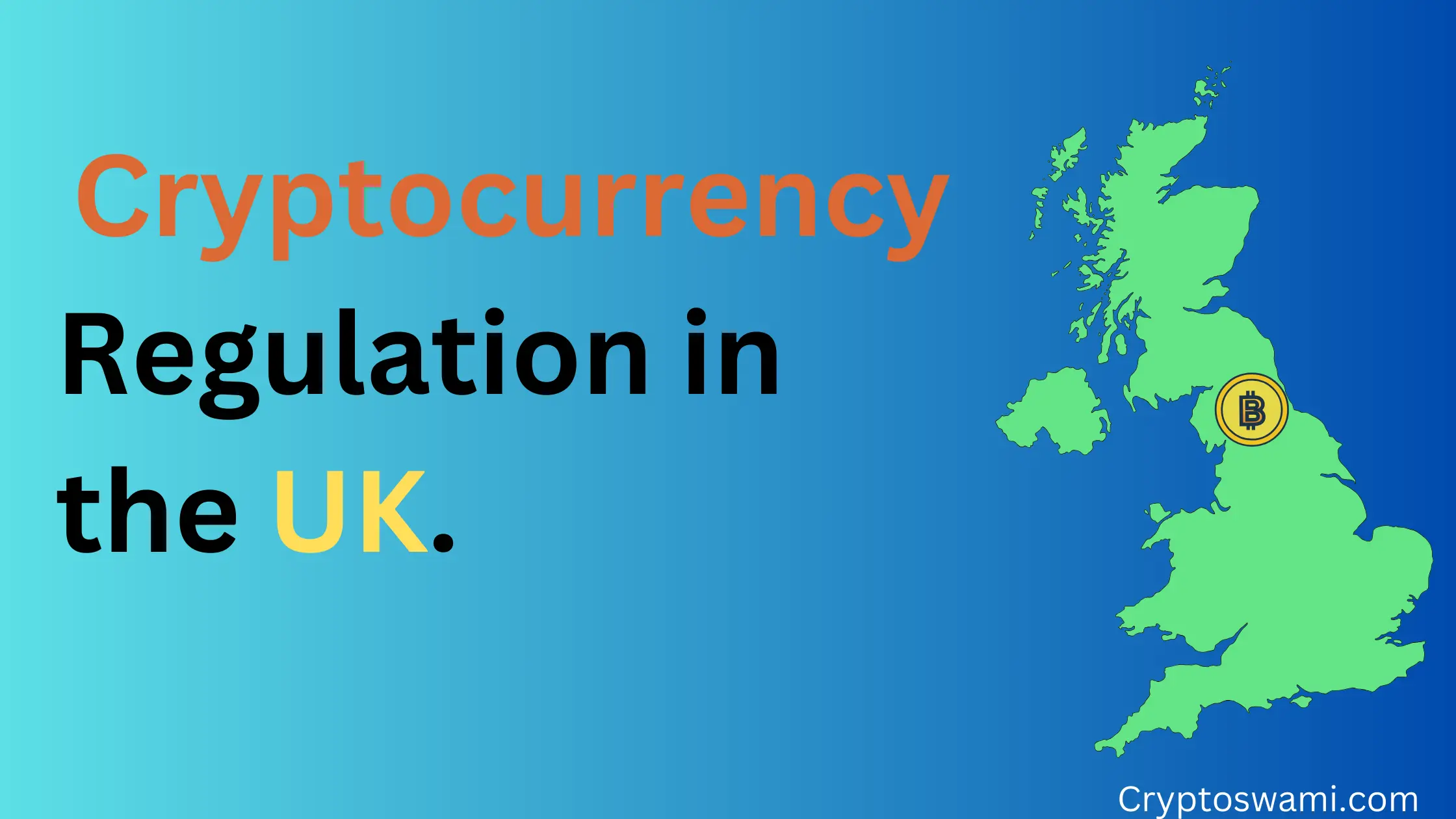From the beginning to the present, nothing has happened in favor of cryptocurrency that clears up what cryptocurrency regulation in the UK will look like.
If you are still looking for an answer as to whether cryptocurrency is regulated or not in the UK. Then the answer is yes, cryptocurrency is regulated in the United Kingdom, but it is not legal tender yet. Also, the UK government charges tax on crypto profits between 10% and 45%.
Here are some statements published by government institutions on behalf of the United Kingdom government.
Remember, some dates (years) are not added here because of the lack of data, and if data is available, they are not proving the point.
The timeline of cryptocurrency regulation in the UK from 2009 to present.
The genesis of bitcoin.
2009
HM Revenue & Customs (HMRC) releases a brief on the tax treatment of cryptocurrencies. Anyone making revenue from cryptocurrency, such as mining, trading, exchanges, payments, or services, is eligible for tax.
March 5, 2014
Bitcoin halving happens.
July 9, 2016
FCA releases a discussion paper on distributed ledger technology (blockchain). Users were asked to respond to the question by July 17, 2017.
April 10, 2017
The FCA publishes responses given by users on distributed ledger technology (blockchain).
December 15, 2017
The “Cyberassets Taskforce” was established, consisting of the FCA, the Bank of England, and Her Majesty’s Treasury. The main aim was to find out how and when cryptocurrency can be regulated in eight different sectors, including trading, mining, and investment.
March, 2018
For the first time “Cryptoassets Taskforce,” gather around the table in the presence of senior leaders from the government and the financial regulators. The taskforce agreed on a variety of objectives.
May 21, 2018
The Cyberassets Taskforce publishes its first report and provides an overview, including risks and potential benefits. The taskforce wants to maintain the UK’s international reputation and inform businesses about cryptocurrency regulation in the UK.
July 30, 2018
FCA released the first chapter on “Guidance on Cryptoassets.” In the report, the FCA outlines its proposed approach to regulating cryptocurrencies and related activities in the United Kingdom.
January 2019
The Financial Conduct Authority (FCA) released a chapter 2 report on “Guidance on Cryptoassets.” The aim of the report is to set parameters for cryptocurrency regulation in the UK. This report basically focuses on consumers in the UK who want to buy and sell cryptocurrency.
July 2019
The FCA published a consultation paper detailing the fee and registration process for cryptocurrency businesses under anti money laundering. A registration fee of £2,000 is payable for firms with income up to £250,000 and £10,000 for firms with income in excess of £250,000.
October 15, 2019
FCA becomes the head supervisor for anti-money laundering (AML) and counter-terrorist financing (CTF) for businesses carrying out certain cryptocurrency activities in the UK. Also, some trade associations, like the British Bankers’ Association (BBA), the Building Societies Association (BSA), and the Association of British Insurers (ABI), have set up the Joint Money Laundering Steering Group (JMLSG), which helps counter AML.
January 10, 2020
Therese Chambers, Director of Retail and Regulatory Investigations at the FCA, gives a speech on financial risk crime. The director said, “Cryptoassets are an attempt to rebuild the financial system from the ground up, without the traditional financial institutional framework.” Also, mention cryptocurrency such as bitcoin and ethereum, which present different financial crimes from traditional finance.
March 5, 2020
FCA publishes a friendly reminder to cryptocurrency businesses to complete registration by June 30, 2020, which was published on October 15, 2019.
June 22, 2020
HM Treasury publishes a consultation paper on financial promotion. This paper wants to bring cryptocurrency promotion under the traditional finance system to ensure the same standards of fairness, clarity, and accuracy.
July 20, 2020
FCA released a statement prohibiting the sale to retail clients of investment products that reference cryptoassets. FCA believes cryptocurrency has no reliable value and has a high risk of volatility. They also mention that banning cryptocurrencies could reduce harm by £19 million to £101 million a year for retail investors.
October 10, 2020
A temporary regime established by the FCA for the cryptocurrency business. This allows cryptocurrency firms to continue tarding until July 9, 2021, while their registration is still pending.
December 16, 2020
HM Treasury published its consultation on the UK regulatory approach to cryptoassets and stablecoins, together with a call for evidence on distributed ledger technology in financial markets.
January 2021
HM Revenue & Customs publishes a cryptocurrency manual and clarifies the tax treatment in it on cryptocurrency profit. The tax slab is in two parts: 10% or 20% and 20% to 45%.
March 30, 2021
British finance minister Rishi Sunak called on the Bank of England to look into digital currency. This digital currency is called Britcoin.
April 19, 2021
The FCA extended the temporary registration regime. The new date to join the Temporary Registration Regime is now March 31, 2022.
June 3, 2021
The temporary registration regime established by the FCA has now ended.
March 31, 2022
HM Treasury published the consultation document ‘Managing the failure of systemic digital settlement asset (including stablecoin) firms’.
May 2022
HM Treasury publishes a consultation outcome about the future financial services regulatory regime for cryptocurrency.
February 1, 2023
Major cryptocurrency Binance has stopped its services in the UK because the FCA denied permission. Some platforms, such as Bybit, PayPal, and Luno, have also stopped their services.
October 16, 2023
HM Treasury publishes a final proposal on the future financial services regulatory regime for cryptocurrency regulation in the UK.
October 30, 2023
HM Revenue & Customs hit UK users with penalties for unpaid cryptocurrency tax.
November 30, 2023
Financial Conduct Authority (FCA) and Bank of England comes under the insurance policy provided to registered firms that allows them a safe space where they can tokenize traditional assets like stocks and bonds using blockchain.
February 12, 2024
Note: This is not legal advice, and the actual statement can be different from the original source. The article shows only an overview; the original article can be found in the source section.
Are cryptocurrencies legal in the UK?
Yes, cryptocurrencies are legal in the UK but not legal tender yet.
Is cryptocurrency trading taxed in the UK?
Yes, cryptocurrency trading is subject to taxation in the UK.
Is Gate.io supported in the UK?
No, Gate.io has stopped its services in the UK.
Is Binance shutting down in the UK?
Yes, Binance has stopped its services in the UK.
Is it legal to mine Bitcoin in the UK?
Yes, cryptocurrency is legal to mine in the UK, but it requires registration and tax.
Can I buy and sell crypto in the UK?
Yes, you can buy and sell any cryptocurrency in the UK.
Can I accept crypto as payment in the UK?
Yes, businesses can accept cryptocurrency payments, but tax is levied.
Source
| March 5, 2014 | April 10, 2017 | December 15, 2017 | March, 2018 | May 21, 2018 | July 30, 2018 | January 2019 | July 2019 | October 15, 2019 | January 10, 2020 | March 5, 2020 | June 22, 2020 | July 20, 2020 | October 10, 2020 | December 16, 2020 | January 2021 | March 30, 2021 | April 19, 2021 | June 3, 2021 | May 2022 | February 1, 2023 | October 16, 2023 | October 30, 2023 | November 30, 2023 | February 12, 2024 |
| Crypto regulation in the UK | Crypto vs UK | Crypto tax in the UK | Cryptocurrency regulation in India |







